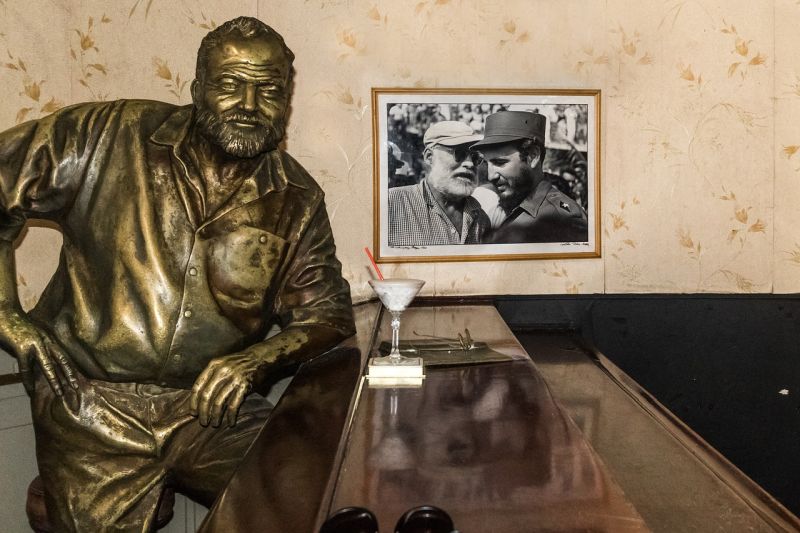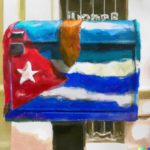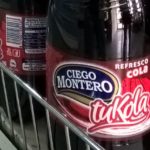Letztes Update: 15. September 2018
Don’t stay in a hotel, but a Casa Particular? A Guide to Self-Catering in Cuba
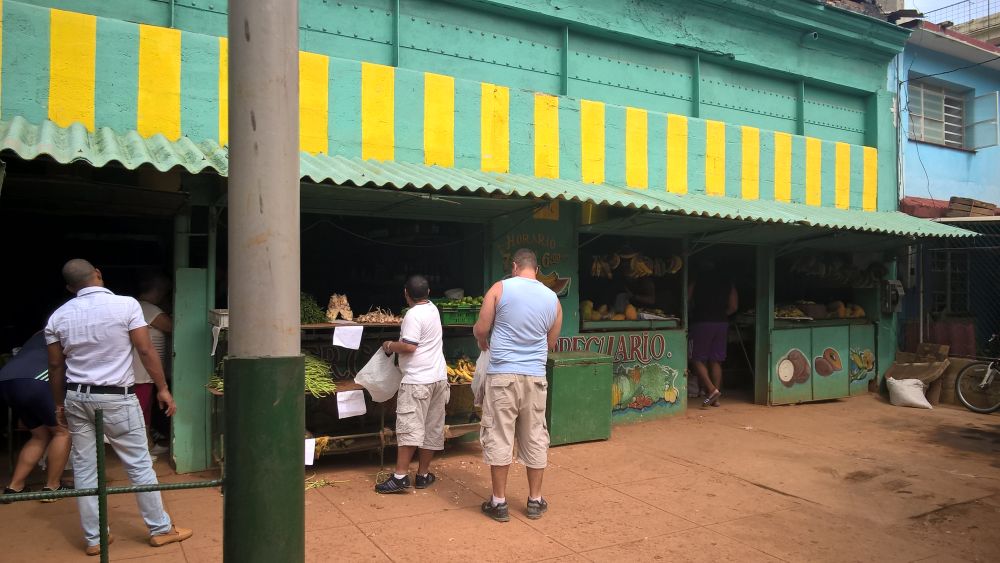
You want to go to Cuba and support yourself, e.g. because you stay in a Casa Particular and not in a hotel with all-inclusive? This is a good idea in principle, because many casas have well-equipped kitchens with everything you need. And, of course, there are many restaurants in Cuba. But is self-sufficiency really a good choice? To make the decision easier for you, I collected my tips for self-catering here.
The Lack of Infrastructure
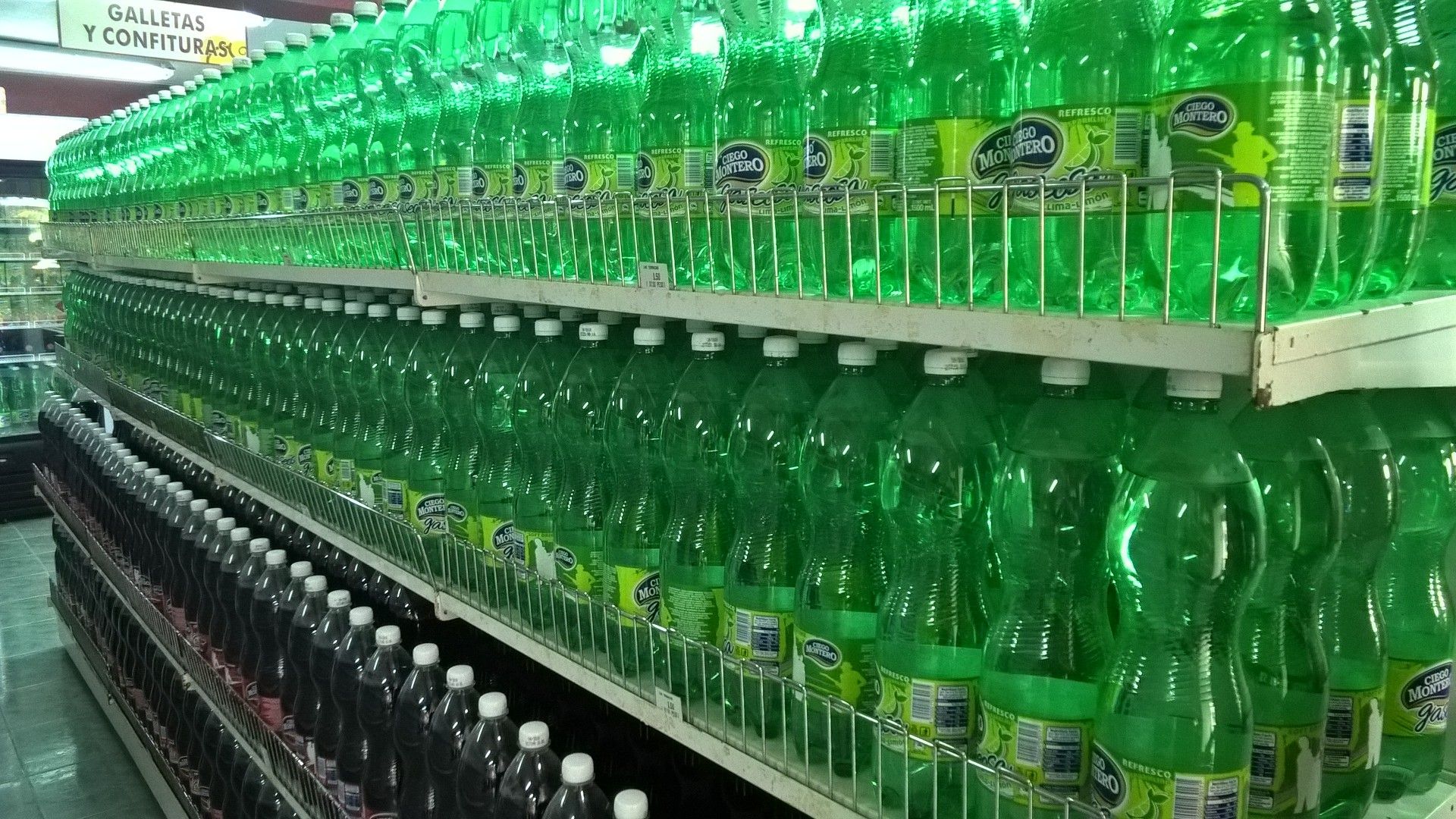
But whoever goes to Cuba and expects he could buy food there the same way than here is wrong. There is neither Lidl nor Aldi nor Wallmart nor Carrefour. Instead, there are state supermarkets, private or state agricultural markets, as well as the bodegas where Cubans receive subsidised products or goods on food ration cards.
The supermarkets in Cuba are usually rather small, but choices are limited – at least since Venezuela no longer supplies oil and Cuba has money worries.
The agricultural markets can take on quite some dimensions and there is generally a lot to buy – although the variation is not comparable with German markets. In general, there are a few kinds of fruit and vegetables at the markets and some meat in the morning. In the afternoon, you don’t want to buy the meat – if there is anything left – after it has been lying in the sun all the time.
Eggs are available depending on the supply situation, sometimes yes, sometimes no and sometimes on the quiet. The state is trying to curb illegal trade, but that is not so easy.
What does this mean for us Tourists
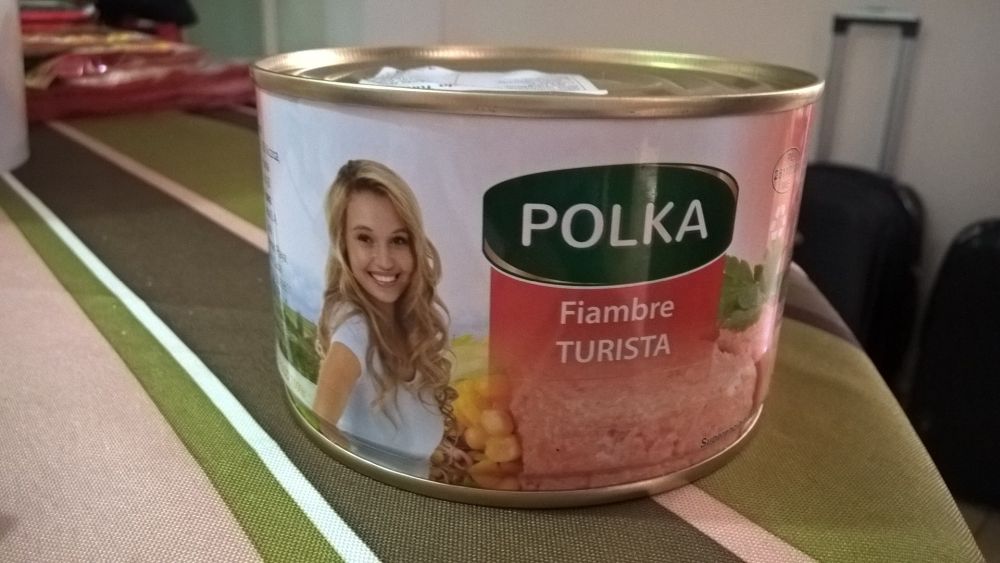
Basically, the situation raises some problems for tourists that we do not have in other countries: self-sufficiency in Cuba means simple food or good planning. If you don’t want to have that for yourself, you should choose a stay in a hotel with half board or all-inclusive. This holds especially true in tourist places like Varadero. Although there are also Casas Particulares there, self-sufficiency is complicated, since the typical tourist resorts are retort-towns that do not have an established infrastructure. So self-catering becomes a full-time job – or expensive, if all your options are constant visits to high priced restaurants.
So if you stay in a Casa particular, you generally have to provide for yourself – if the Casa parents don’t cook for you. That means either living vegetarian and without much variation, or eating out and most restaurants in Cuba are not exactly cheap.
What’s on the markets there
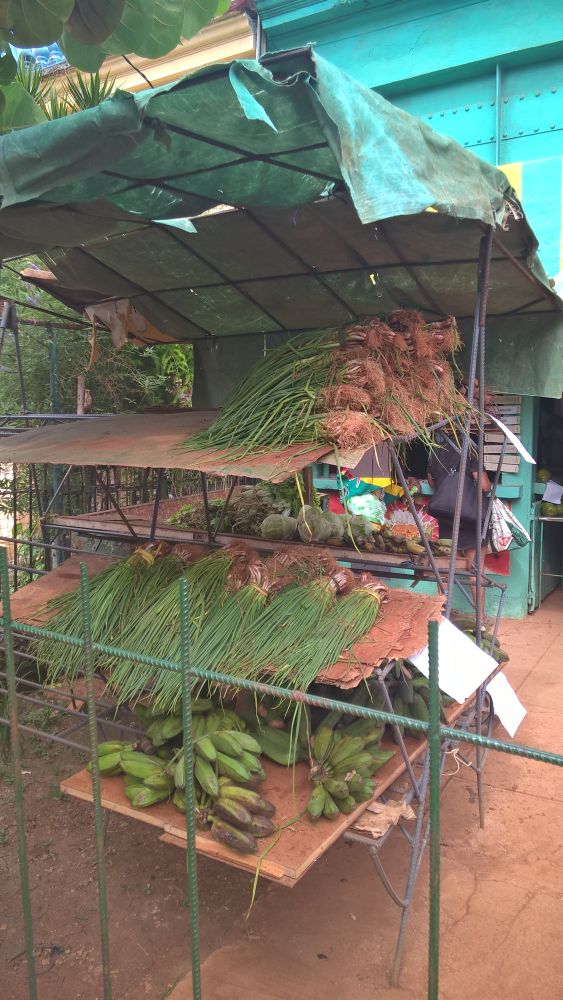 The markets generally have the products of the season and yes, even in Cuba there are different seasons, although it is always warm 😉 Sometimes there are mangos, sometimes avocados, but quite never all at the same time. O.k. maybe besides onions and garlic, those you’ll find actually always from the travelling traders.
The markets generally have the products of the season and yes, even in Cuba there are different seasons, although it is always warm 😉 Sometimes there are mangos, sometimes avocados, but quite never all at the same time. O.k. maybe besides onions and garlic, those you’ll find actually always from the travelling traders.
La Lucha – the daily struggle
For the Cubans, this means fighting for their food every day, which is called “La Lucha”, the fight, and describes quite well how the Cuban daily routine looks like. You have to plan and search until all the ingredients and necessities are there, almost a full job in itself.
For us tourists with limited time in our holiday, it’s quite unpractical to go hunting for food. It is better to supply yourself externally, for example through your Casa Mama or via an all-inclusive hotel, or simply through daily restaurant visits.
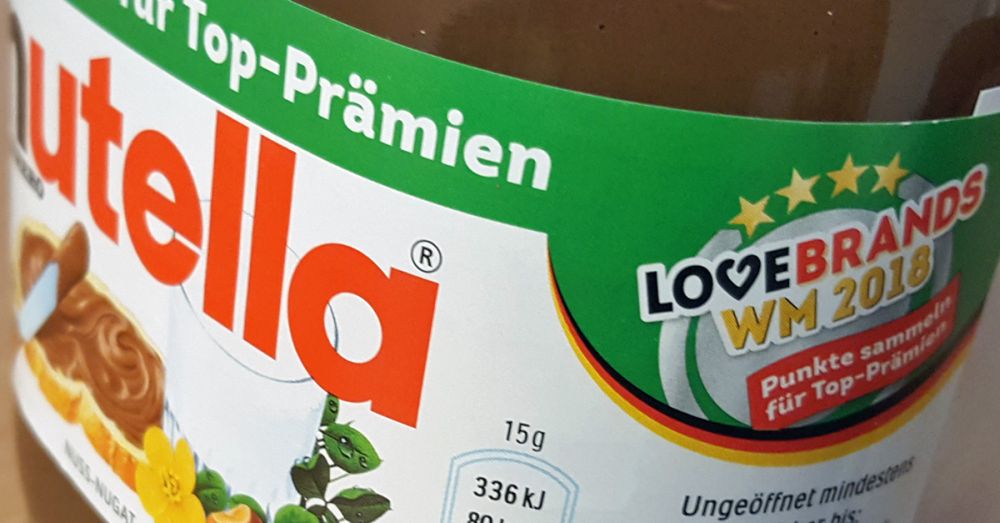
If you have the opportunity to book meals at Casa Particular, you should do so. Not only because it saves you a lot of time, but because the food selection is also better and above all: the Cubans (and especially the female ones) can cook well and actually you only get real Cuban food served at home. This ranges from plain rice with beans to meat specialities and lobster, after which you will lick your fingers 🙂
Take food with you and import it
One of the solutions I chose is the massive use of carrying food – half of my suitcase is always packed with food. However, these goods must be packaged, not only because of the climate, but because of the usual entry regulations: fresh products can transmit diseases and must not be imported. However, it only happened to me once that I was really controlled on it. And I’m sure the chorizo that was taken from me wasn’t really destroyed in the end – if you know what I mean 😉
Dining out – Cuban restaurants

Most restaurants in Cuba are state-socialist, even though most of them are private cooperatives today. It’s easy to recognise if there are more waiters there than guests. The food isn’t bad, but “good” is really something different.
Private restaurants (=Paladares), generally have a much better quality, but also a slightly higher price. However, even there the quality has not yet reached the level of the price – whereby one saves on the drinks again. My tip to find the really good restaurants is relatively simple: TripAdvisor. The ratings on TripAdvisor are more or less reliable for Cuba and the food tastes good in those rated restaurants.
A short tip: let you show you the menu before you enter the restaurant, so that you get a feeling for the prices!
Then there are also numerous snack bars and small bistros in Cuba. At them you can also get lucky and get tasty food for a small amount of money. You shouldn’t expect too much for 2 to 3 CUC, but you will always be full and satisfied.
In the Country
I have now written from the city’s point of view. And of course things are different in the country compared to Havana. There are more products that we can buy directly from the farmer: Cheese, eggs, fresh vegetables and sometimes meat. However, there is only what is harvested in the season.
Regional Seasonal Markets
Lutz von Cuba-Lutz – diary of an emigration (in German), recently described how the half-yearly seasonal market in Bayamo demands a lot of strength from everyone involved: getting up early, shopping endlessly in the heat and then carrying much, much home. These markets are probably typical for the provinces, the companies empty their warehouses and the people buy without stopping 😉
Conclusion: Shopping, a Challenge

Usually you don’t travel to Cuba because of their food, but because of the people, the sun and the sea. Nevertheless, you should be prepared and know what the supply situation is like. This means, for example, that I take half the suitcase full of food with me. Of course you must be aware that you are not allowed to bring fresh food with you. And of course, the food should also be preserved, because you usually have a refrigerator in the Casa, but you have to get there first – maybe your suitcase needs a week longer than you… Classics to take are therefore shrink-packed food, canned food, instant soups, sauces, noodles, rice and, most importantly, spices. Especially if you want it hot, you should definitely take your Tabasco with you, the Cubans don’t eat anything hot, it’s not Mexico 😀
And if you travel to tourist resorts, you should be aware that the infrastructure is not designed for self-sufficiency. This means that you have to eat out a lot, which is of course very expensive in tourist resorts. Or play it safe & smart and include your meal in the booking, either in the hotel or in the Casa Particular.
So, now I’m hungry, now I’m going to have a barbecue 😉
Saludos desde Berlin,
Dietmar
PS: Always count the change in supermarkets and check the bill – quite often, they try to screw you!
PS: For great Cuba pictures, you can follow us on Instagram or Pinterest!




